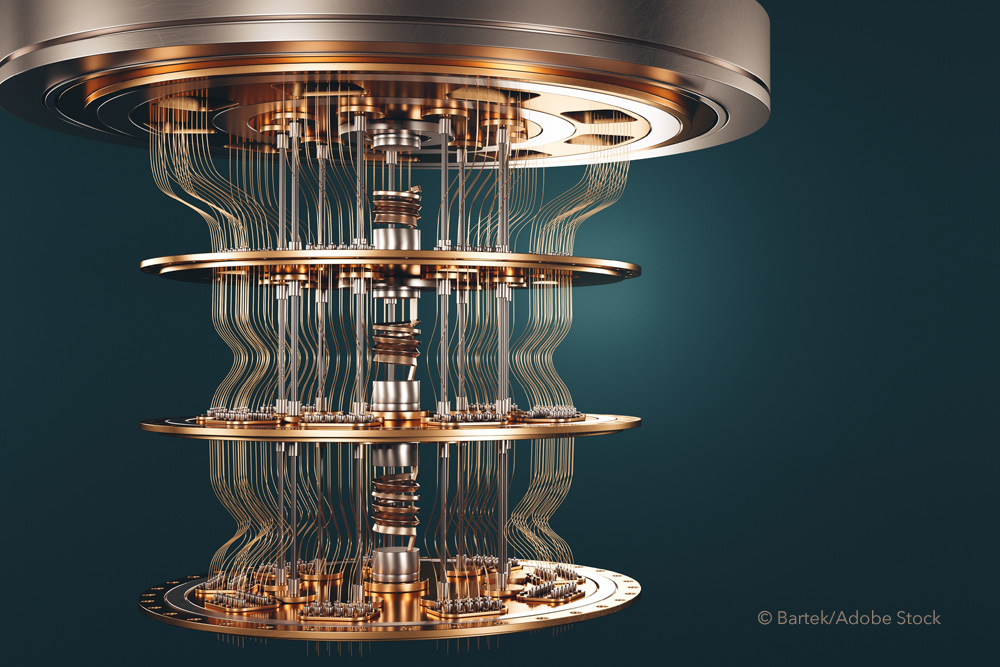In cooperation with ML2R: Fraunhofer presents study »Quantum Machine Learning«
September 3, 2020
Quantum computers will profoundly change Artificial Intelligence and Machine Learning. In a study, experts explain what lies behind these changes: how quantum computing works, which basic concepts and technologies are being used and how quantum computers can accelerate Machine Learning processes. The researchers also provide insights into the current scientific and competence landscape and point out future fields of application and market potential. The study was prepared by the Fraunhofer Big Data and Artificial Intelligence Alliance in cooperation with ML2R and other partner organizations.
Many tasks in the field of Big Data and Artificial Intelligence can only be solved with immense time and computing effort, even with advanced computer systems. Some problems are in fact so complex that they are almost impossible to solve with today’s computing capacities or their calculation would take years. A »quantum leap« is needed to take Artificial Intelligence and Machine Learning to a new level of development and to make the almost unsolvable solvable.
This is where computer technology based on quantum physical principles comes in. Quantum computing has the potential to overcome the fundamental limitations of classical digital computers. While a digital computer calculates with bits, a quantum computer works with qubits, which in contrast to the classical bits can assume not only one of two possible states, but also a superposition of both. Methods of Artificial Intelligence and Machine Learning can be adapted for quantum computers in such a way that they can pursue several solution paths simultaneously. This enables quantum computers to process large data sets in a single step, to detect patterns in data that classical computers cannot detect, and to deliver reliable results despite incomplete or uncertain data.
In the »Quantum Machine Learning« study, scientists provide insights into quantum computing, explain which physical effects play a role and how methods of Machine Learning and Artificial Intelligence can be adapted for the technology. In addition to the logical components, techniques for implementing the hardware of quantum computers are also presented. The study furthermore gives an overview of the current research and competence landscape, presents concrete application areas and market potentials and assesses Germany’s position in international competition.
The aim is to show stakeholders from business, science and society at an early stage the opportunities and possibilities that will arise in the coming years through the combination of the key technologies of quantum computing and Machine Learning. The Fraunhofer study is intended to provide an initial orientation along the way.
You can download the study (in German language) free of charge!
Further information (in German) as well as short video interviews with authors of the study, including ML2R researchers Prof. Dr. Christian Bauckhage and Dr. Nico Piatkowski, can be found on the Quantum Machine Learning page of the Fraunhofer Big Data and Artificial Intelligence Alliance.
Please also read the Fraunhofer press release (in German) on the publication of the study.
Contact:
Inga Daase
Fraunhofer Institute for Intelligent Analysis
and Information Systems IAIS
Schloss Birlinghoven
53757 Sankt Augustin
Germany


